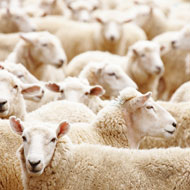PM confirms support for farming and welfare

"We will maintain the UK’s high standards of food safety and of animal welfare; that will be a priority for us."
The Prime Minister has confirmed she will maintain the UK’s standards of food safety and animal welfare when the UK leaves the European Union.
Victoria Atkins, MP for Louth and Horncastle, asked Theresa May whether the government would continue to back British farming and ensure the high standards expected of food producers and farmers will be met in any international trade deals struck. The question was posed during the Prime Minister’s Question Time on Wednesday (15 March).
Responding, Theresa May said: “I can assure my hon. friend that we will certainly do that…
“We have an opportunity to build a new future for our food and farming industry when we leave the European Union. We will maintain the UK’s high standards of food safety and of animal welfare; that will be a priority for us.
“Any trade deals we enter into will need to be right for consumers, for businesses and for farmers, and will need to ensure our food safety and environmental protection, and of course the animal welfare standards I have just referred to.
“We recognise the need for certainty for businesses. We have already provided guarantees on support for farmers up to 2020, and I can assure her that we will continue to back British farmers.”
Her comments were welcomed by the Country Land and Business Association. President Ross Murray said: “I am delighted the Prime Minister has confirmed her unequivocal backing for British farming. As we move ever closer to Brexit, our farmers need certainty that their quality products and high environmental and welfare standards will continue to play a major role within the UK and EU food chain and beyond.
“Getting our trade deal with the EU right must be the priority. We shall play our part to ensure the Government establishes new international trade deals which benefit farmers and consumers alike and will hold the Government to account to deliver on this commitment.”



 The Federation of Independent Veterinary Practices (FIVP) has announced a third season of its podcast, Practice Matters.
The Federation of Independent Veterinary Practices (FIVP) has announced a third season of its podcast, Practice Matters.